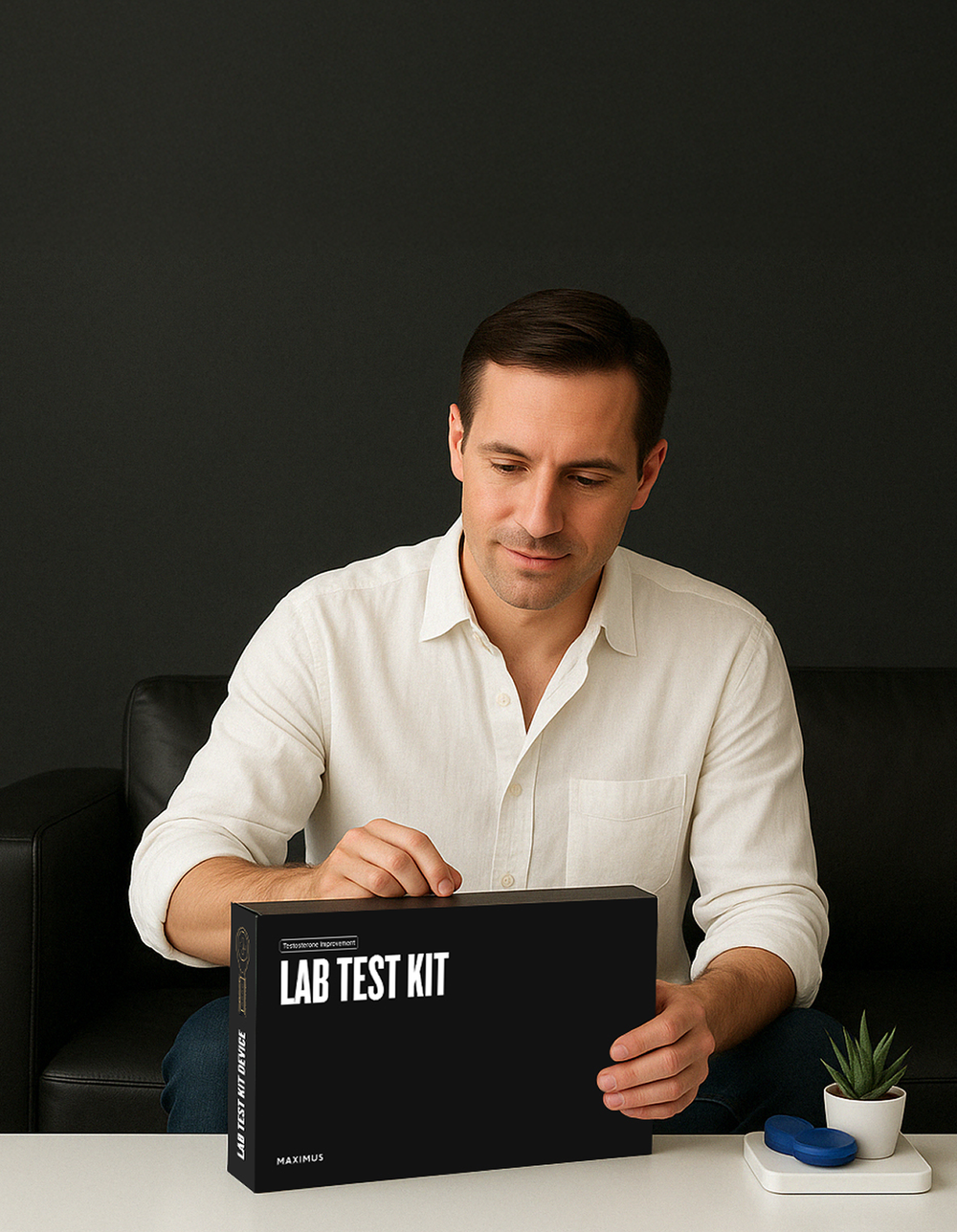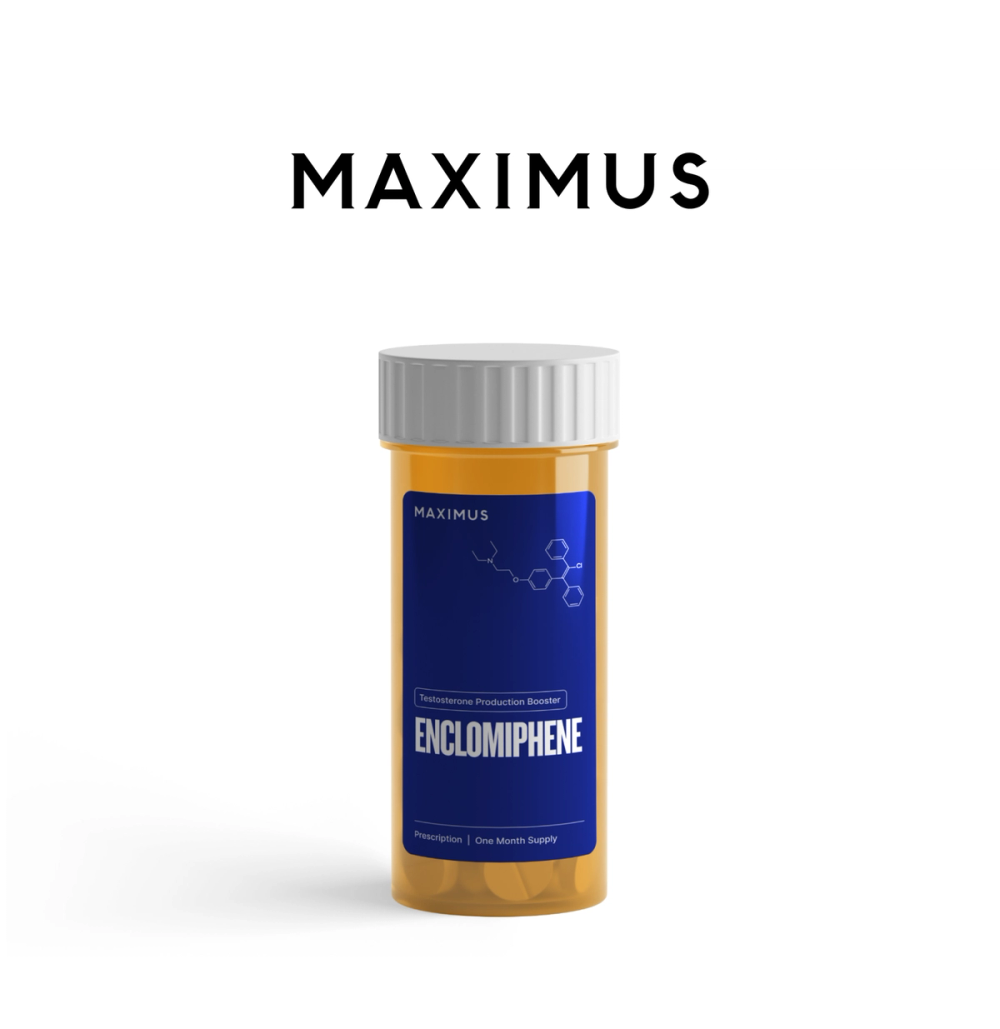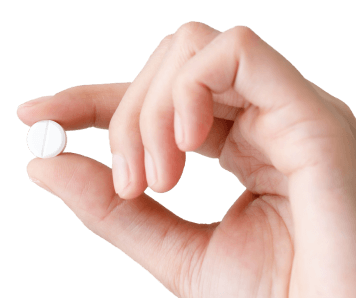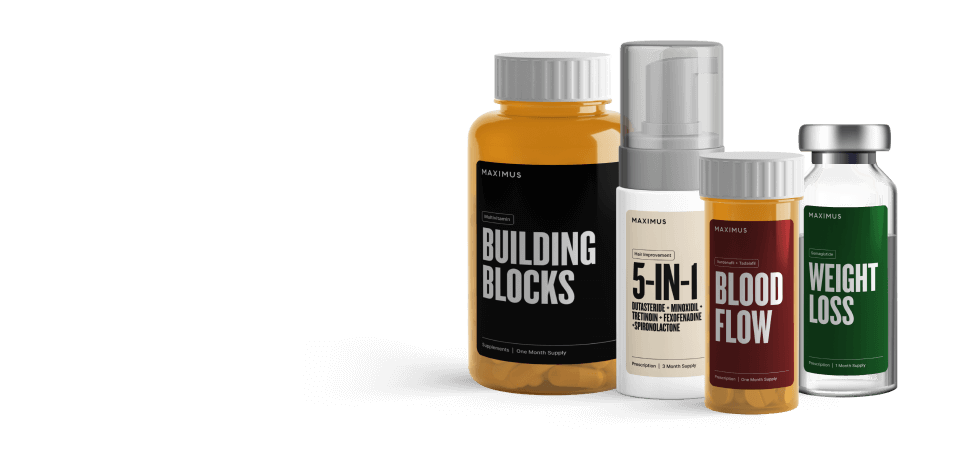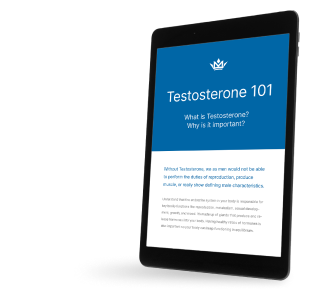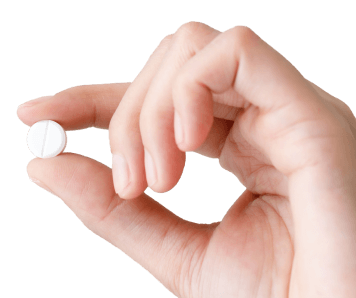Introduction
Testosterone levels decline naturally as we age, and now that we’re living longer, the demand for testosterone treatment is rising. One such treatment is testosterone replacement therapy, or TRT, which treats low testosterone (hypogonadism) through injections, pellets, patches, or gels containing synthetic testosterone. Though studies show that TRT is an effective treatment for hypogonadism and helps to improve quality of life, there are a number of risks associated with the hormone treatment that should be considered, especially if you are hoping to have children one day.
Find out more about how TRT works, the pros and cons associated with the treatment, and alternatives to TRT to consider.
Key takeaways:
- Testosterone replacement therapy, or TRT, treats low testosterone (hypogonadism) through injections, pellets, patches, or gels containing synthetic testosterone.
- Pros of TRT include increased libido, improved erections, more muscle mass, weight loss, and better overall quality of life.
- Cons of TRT include decreased sperm count and quality, testicular shrinkage, increased risk of blood clots, and breast growth.
Symptoms of low testosterone
The American Urological Association defines “normal” testosterone levels of at least 300 ng/dL. But to be clinically diagnosed, you must have low testosterone levels in addition to signs and symptoms.
If you haven’t been tested, you may not know if you have low testosterone, but these signs and symptoms can be clues:
- Low libido
- Erectile dysfunction
- Small testicular size
- Decreased muscle mass
- Increased body fat
- Hair loss
- Trouble sleeping
- Poor concentration
- Low sperm count
What causes low testosterone?
Testosterone levels decline at an average of 1.6% per year. And nearly 39% of men aged 45 and older have low testosterone, also known as hypogonadism.
There are two types of hypogonadism:
- Primary hypogonadism: Results from a testicular issue like an injury or anatomical problem
- Secondary hypogonadism: Caused by an issue with the hypothalamus or pituitary gland like a brain injury or genetic condition
Besides age, other potential causes of hypogonadism include:
- Testicular tumors
- Stress
- Obesity
- A genetic condition like Kallmann syndrome or Klinefelter syndrome
- Undescended testicles, absence of testicles, or enlarged veins in the scrotum (varicocele)
- Inflammation of the testicles, or orchitis
- Illness such as tuberculosis, kidney failure, liver failure, or HIV/AIDs
- Cancer treatments and medications like chemotherapy
- Steroid use
What is TRT?
Testosterone replacement therapy (TRT) is a type of hormone treatment that aims to reduce symptoms associated with low testosterone like erectile dysfunction and fatigue. Using methods ranging from injections and patches to pills and creams, TRT works by shutting down the body’s natural production of testosterone and replacing it with a synthetic version of the hormone. TRT is also used for non-medical reasons like building muscle mass, enhancing sexual function, and losing weight. In a study of the long-term changes associated with TRT in middle-age and older men with hypogonadism, patients on TRT reported rapid and sustained improvements in quality of life, with fewer sexual, psychological, and somatic symptoms.
Pros of TRT
Numerous studies show that TRT is associated with a number of benefits, including improved quality of life, increased libido, more energy, and even better confidence. This is especially true in older men who have experienced a dramatic drop in testosterone levels as proven in clinical tests. TRT pros include the following:
Increased libido
One common complaint of men with low testosterone is having a decreased libido. In this 2017 study, TRT “significantly” improved libido, but these results plateaued after three months of treatment.
In this more recent review, researchers found that the effects of TRT on libido were dose-dependent. Those who received 100 mg/day testosterone gel showed improvement in spontaneous erections, sexual motivation, sexual desire, and sexual performance, even after 90 days of treatment, a result not seen in those on 50mg a day.
Improved erections
Some men with erectile dysfunction have normal testosterone levels, but when men who cannot get or maintain an erection also experience other symptoms like fatigue, depression, and decreased libido, low testosterone may be to blame. After all, in cross-sectional studies, men with low testosterone have a greater prevalence of erectile dysfunction when compared to men with normal testosterone levels.
According to researchers at Harvard, TRT can improve erections for the majority of men who undergo this treatment, which is why TRT is typically prescribed first before popular medications like Viagra. But in the 2017 study cited above, TRT was found to be more useful in treating mild erectile dysfunction compared to severe cases.
More energy
In this 2019 study, 52% of men claimed that TRT improved their energy levels, which was found to be even more common than those reporting increased libido and increased muscle mass. This included physical energy required to perform tasks, stamina, and even mental energy like the motivation and drive to engage socially both at work and at home. However, according to the Mayo Clinic, there's little evidence that TRT improves vitality and energy, especially when taken by otherwise healthy men.
Better sleep
Research shows that men with lower testosterone levels have lower sleep efficiency and rarely sleep through the whole night. In this 2018 study, researchers found that, along with improving sexual function and quality of life, TRT also improved sleep conditions in men with low testosterone suffering from sleep disturbance.
Increased muscle mass
Though TRT has been shown to increase muscle mass in middle-aged and older men, results vary based on how the testosterone is administered. Intramuscular TRT, in which testosterone is injected, appears to be more effective in increasing muscle mass and overall body strength when compared to transdermal TRT. The hormone therapy may also be beneficial for those without low testosterone. In a 12-week study of TRT, normal male subjects experienced increased muscle mass due to an enhancement of muscle protein synthesis.
Weight loss
Research has shown there is a bidirectional relationship between hypogonadism and obesity, with obesity contributing to low testosterone, and low testosterone promoting obesity. Studies have revealed that TRT is an effective approach to achieving sustained weight loss up to eight years in obese men with low testosterone, irrespective of the obesity severity. But some researchers purport that TRT can only contribute to weight loss when combined with dietary changes.
Athletic endurance
TRT has become increasingly popular among athletes to optimize their endurance and stamina and has been proven to give them a competitive advantage. Not only does testosterone boost energy and increase muscle mass, but it also increases motivation to compete. These findings have led to TRT bans in most competitive sports.
Positive mood
In hypogonadal men with depression, TRT has been shown to improve some aspects of depression and cognitive ability, including improved memory. Other research shows that TRT contributes to a more positive mood by reducing irritability, nervousness, and tiredness.
Cons of TRT
Despite the benefits of testosterone on sexual function, mood, and overall quality of life, there is extensive evidence that these benefits come at a cost for many men, with drawbacks ranging from acne and testicular shrinkage to decreased sperm quality and cardiovascular issues. This is especially true for those who have normal testosterone levels before starting treatment. TRT cons include the following:
Decreased sperm count and quality
TRT can disrupt the body’s hormonal processes by shutting down the natural production of testosterone as well as suppressing LH and FSH levels, which are vital for sperm production. In fact, some experts consider exogenous testosterone a contraceptive because of its connection with azoospermia, a lack of sperm in semen. In this 2019 study, TRT led to azoospermia in 65% of men within four months of starting, even though they had previously normal sperm counts. Though cessation of TRT reversed hormonally-induced azoospermia in 64% to 84% of men within 110 days, it took some men up to two years to fully recover.
Testicular shrinkage
Because TRT suppresses the production of LH and FSH, the natural production of testosterone in the testes is halted, which can result in testicular shrinkage. In a study of men on TRT aged 38 to 81, testicular volume decreased over time, from a mean of 16.5 ml before treatment to 13.7 ml at 24 months, with atrophy becoming significant from six months.
Enlarged prostate
There are mixed findings on whether TRT enlarges the prostate, with some experts suggesting that it can slow the growth of prostate cancer when administered in a specific way. However, this study by the Department of Urology at New York Presbyterian Hospital found that TRT increased prostate size by 12%, which may actually raise prostate cancer risk.
Cardiovascular issues
According to the American College of Cardiology (ACC) and American Endocrine Society, those with a history of heart failure, myocardial infarctions, and stroke should avoid TRT because of an increased risk of heart attack. Animal studies show that TRT has vasoconstrictive, pro-atherosclerotic, and pro-inflammatory properties, which contributes to this risk. In this 2019 study, the risk of having a stroke or heart attack was highest during the first six months to two years of continuous TRT use.
Sleep apnea
Though TRT has been shown to improve sleep quality in some users, this 2018 study found that TRT actually worsened symptoms of obstructive sleep apnea due to its neuromuscular effects on the airways, changes in metabolic requirements, and changes in the physiologic response to disordered breathing.
Acne
There is some evidence that people with acne have higher levels of testosterone than those without acne due to excessive sebaceous gland activity, which clogs pores. Because TRT increases levels of testosterone, some may experience acne breakouts as a side effect.
Breast growth
Enlarged breasts, or gynecomastia, is a common symptom of hypogonadism, as a result of testosterone levels going down and estrogen levels consequently going up. Obesity and aging are also known to exacerbate these effects. However, TRT does not seem to be an appropriate solution. Studies show that when testosterone is replaced synthetically, some of the testosterone gets converted into estrogen, which contributes to breast growth.
Blood clots
TRT is associated with an increased risk of blood clots due to its effects on blood viscosity and platelet accumulation. This risk is higher in younger men with or without hypogonadism and for those with a previous history of venous thromboembolism as shown in this study.
Dependency
When the body becomes accustomed to TRT, its ability to produce testosterone naturally is disrupted, which may lead to dependency. In 2016, the FDA issued new labeling to make consumers aware of the risk of abuse and dependency associated with TRT and listed withdrawal symptoms as: depression, fatigue, irritability, loss of appetite, decreased libido, and insomnia.
Alternatives to TRT
Alternatives to TRT
Testosterone restoration is an alternative to testosterone replacement through medications like enclomiphene, a selective estrogen receptor modulator (SERM), which stimulates the production of the hormones LH and FSH to produce more testosterone.
Medication
Enclomiphene is the purified isomer of Clomid (Clomiphene Citrate), which has been approved by the FDA since 1967 for fertility in women, and has been commonly used off-label in men to treat symptoms of low testosterone.
Enclomiphene is an alternative to boost your testosterone without sacrificing your fertility, testicular size, or overall health. In fact, side effects of enclomiphene are minor and occur rarely, such as headache (in less than 4% of patients), nausea (less than 3%), and joint pain (less than 2%).
How to naturally support testosterone production
In addition to taking medication, lifestyle changes can also support your natural production of testosterone. These include:
- Following a healthy diet of whole foods and minimizing processed foods
- Exercising regularly, especially strength training
- Losing weight
- Getting adequate sleep
- Cutting back on alcohol and smoking
- Reducing your stress levels
- Limiting exposure to endocrine disruptors like BPA and plastics
The Maximus Testosterone Protocol helps to restore and optimize testosterone production by combining enclomiphene tablets with personalized health coaching on nutrition, exercise, sleep, focus, and more. You’ll also receive CLIA-certified lab tests shipped to your door, allowing you and your doctor to monitor your testosterone levels before and after starting treatment so you can make sure the protocol is working for you.
Learn more about how Maximus’ EP Protocol works.
Disclaimer: The contents of this article, including, but not limited to, text, graphics, images, and other information, is for information purposes only and does not constitute medical advice. The information contained herein is not a substitute for and should never be relied upon for professional medical advice. The content is not meant to be complete or exhaustive or to be applicable to any specific individual's medical condition. You should consult a licensed healthcare professional before starting any health protocol and seek the advice of your physician or other medical professional if you have questions or concerns about a medical condition. Always talk to your doctor about the risks and benefits of any treatment. Never disregard or delay seeking professional medical advice or treatment because of something you have read on this site. Maximus does not recommend, endorse, or make any representation about the efficacy, appropriateness, or suitability of any specific test, products, procedures, treatments, services, opinions, healthcare providers or other information contained herein. Maximus is not responsible for, nor will they bear any liability for, the content provided herein or any actions or outcomes resulting from or related to its use.
